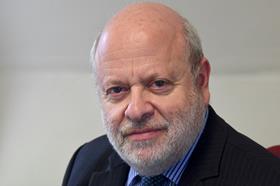Here are two instructive and linked tales.

First, in the European Commission’s 2023 Rule of Law Report there is half a page on lawyers and over five pages on judges and prosecutors.
Second, lawyers cannot agree among themselves how to balance the interests of the client and the interests of justice. I have been party to endless international arguments as whether the lawyer should decide where the balance lies, or whether the lawyer should do whatever lawful action the client wants (no matter how damaging).
These two tales are linked. Both arise because of a vacuum at the heart of the legal profession: there is no narrative about our role in the rule of law. The European Commission doesn’t know what to ask lawyers to put in its report (and we don’t know how to tell them what questions to ask), and we have no rule of law framework to settle important questions for ourselves.
You don’t have to take my word for the lack of a narrative. Here is an extract from Climate Change and the Rule of Law(yers), an academic article by Steven Vaughan from the Faculty of Laws, University College London (without his extensive footnotes):
[We] lack detailed accounts that have focussed in depth and directly on lawyers and the rule of law. There is much more, for example, on ‘legal institutions’ and the rule of law (including on judges and judicial independence), or on lawyers, international development and the rule of law [which Vaughan describes as being in the context of democratic state-building, instead of lawyers’ roles per se in relation to the rule of law] or on lawyers and (access to) justice, and so on. Lawyers are often periphery players, if mentioned at all, in many accounts of the ‘rule of law’; their roles and functions are under-theorised and largely absent from the rule of law literature. This is a disappointment as there is much that could, query should, be said on this topic given, as Brian Tamanaha puts it, ‘The legal profession … is located at the crux of the rule of law.’
Vaughan gives a clue, too, to how the beginning of a narrative could be constructed:
Alvin Esau argues, and I fully agree, that ‘what the lawyer does in the privacy of the office may be seen as part of the public administration of justice because law is made and applied through lawyer counselling and planning and often this “private” law has public impacts as great as any ruling of a high court’. … As Gerard Brennan reminds us, ‘the courts are the long-stop. The law which rules is the law according to the rulings of the courts, but it is applied in the offices and chambers of the legal profession. It is applied in drafting and advising; in consultations more than in litigation’.
In other words, we lawyers are at the heart of applying the law, yet we lack a narrative of our role as contributor to the rule of law.
As an example of our current loss, we are being buffeted by attacks – by the government, in parliament, in the press – on a range of matters: immigration, SLAPPs, tax avoidance, NDAs, climate change.
In response, we fall back on the old principle that lawyers should not be identified with the causes of their client, found in Principle 18 of the UN Basic Principles on the Role of Lawyers.
But those principles were drafted back in 1990, and focused on criminal lawyers, which is relevant. First, there was no social media or internet back in 1990, and yet now many lawyers deliberately identify themselves through tweets and blog posts with their clients’ interests. Second, none of the current attacks on our reputation come about because of criminal representation.
Someone, somewhere – a professional organisation like the Law Society, for instance – needs to undertake an academic literature review (because there are contributions out there, cited in the Steven Vaughan article), and begin to fashion a story as to how lawyers fit into the rule of law framework.
For instance, if the two academics cited above are correct when they say that it is lawyers who make and apply the law daily and repeatedly, and much more frequently and with more widespread impact than any court of law through the advice given to streams of clients, then that needs to be acknowledged and put at the heart of our story.
After that, future European Commission Rule of Law Reports might devote an equal number of pages to lawyers as those it currently gives to judges and prosecutors. And we might develop a universal solution to the questions plaguing us now as to how a lawyer should act when clients’ interests conflict with the interests of justice.
Jonathan Goldsmith is Law Society Council member for EU & International, chair of the Law Society’s Policy & Regulatory Affairs Committee and a member of its board. All views expressed are personal and are not made in his capacity as a Law Society Council member, nor on behalf of the Law Society































No comments yet